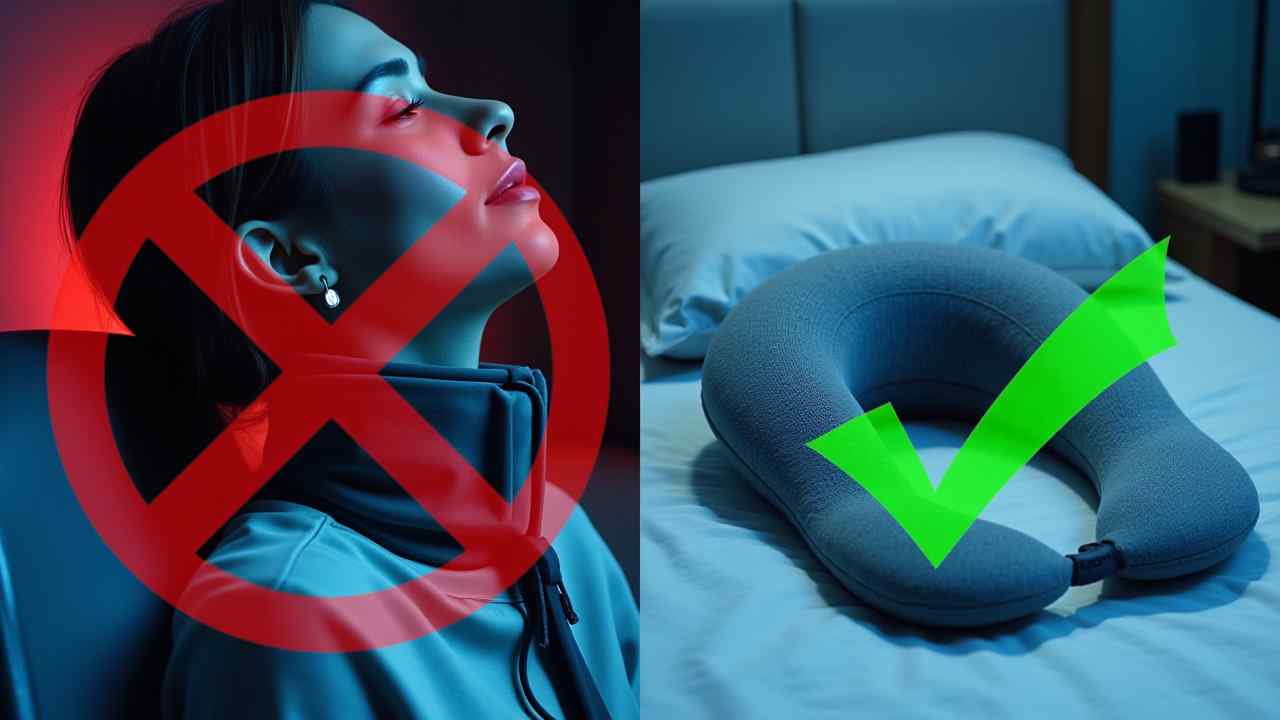
🩺 A Doctor's Warning on Using a Cervical Collar for Sleeping
🩺 Using a Cervical Collar for Sleeping: A Doctor's Safety Guide 🩺
❗ CRITICAL MEDICAL WARNING: A cervical collar for sleeping (or a soft neck brace) is a medical device. It should only be used when specifically prescribed by a doctor or physical therapist. Self-treating neck pain with a collar can be dangerous and may make your condition worse over time.
If you are struggling with neck pain, getting a comfortable night's sleep can feel impossible. In a search for relief, you might consider using a soft cervical collar. It seems like a logical way to support your neck. However, for general neck pain, this is not the recommended solution.
This guide will explain the proper medical uses for a neck collar. We will also detail the serious risks of using one without a doctor's guidance. Most importantly, we will cover the safer alternatives that actually help. ⚠️
🤔 When Do Doctors Prescribe a Cervical Collar for Sleep?
A cervical collar's purpose is to immobilize your neck. This is to prevent further injury or to allow the spine to heal after a major event. A doctor will only instruct a patient to sleep in a collar in a few specific situations. These are almost always temporary.
- After a Traumatic Injury: A rigid collar is used after a car accident or a serious fall to stabilize the cervical spine.
- During Post-Surgical Recovery: After certain neck surgeries, a collar is essential to ensure the area heals in the correct position.
- For Severe, Acute Pain: In some rare cases, a doctor might recommend a soft collar for very short-term use (a few nights) to manage a severe flare-up of pain.
🚫 What Are the Serious Dangers of Unprescribed Use?
Using a cervical collar for sleeping on your own is a bad idea. While it might feel supportive in the short term, it can cause significant long-term problems. The risks far outweigh any temporary benefits.
Can it weaken your neck muscles?
Yes. This is the biggest danger. The collar does the job of holding your head up. As a result, your neck muscles do not have to work. When muscles are not used, they weaken and shrink (atrophy). Over time, this can lead to chronic pain and instability. Your neck will be weaker than it was before.
Can it cause other problems?
Yes. Immobilizing your neck every night can lead to increased joint stiffness. Your body can also become dependent on the brace. Furthermore, using a collar to mask pain might prevent you from getting a proper diagnosis for a more serious underlying issue.
✅ What Are Safer and Better Alternatives for Nighttime Neck Pain?
The good news is there are much safer and more effective solutions. These methods focus on promoting healthy alignment. They support your neck's natural structure. They are the solutions recommended by doctors and physical therapists.
1. Get a Cervical Pillow: This is the number one tool for nighttime neck pain. A cervical pillow is ergonomically designed. It has a contour that supports the natural curve of your neck. This keeps your spine in a neutral line, whether you are on your back or your side. 🛌
2. Fix Your Sleeping Position: The best position for your neck is sleeping on your back. The second-best is on your side with a proper pillow. The worst position by far is sleeping on your stomach. This forces your head to be twisted all night.
3. Use Gentle Stretches and Heat: Gentle neck stretches before bed can release muscle tension. A warm compress can also help to relax tight muscles and soothe pain.
If you have persistent neck pain, do not self-treat with a cervical collar for sleeping. Your first and only step should be to see a doctor. A proper diagnosis is the key to a safe and effective treatment plan. 🩺